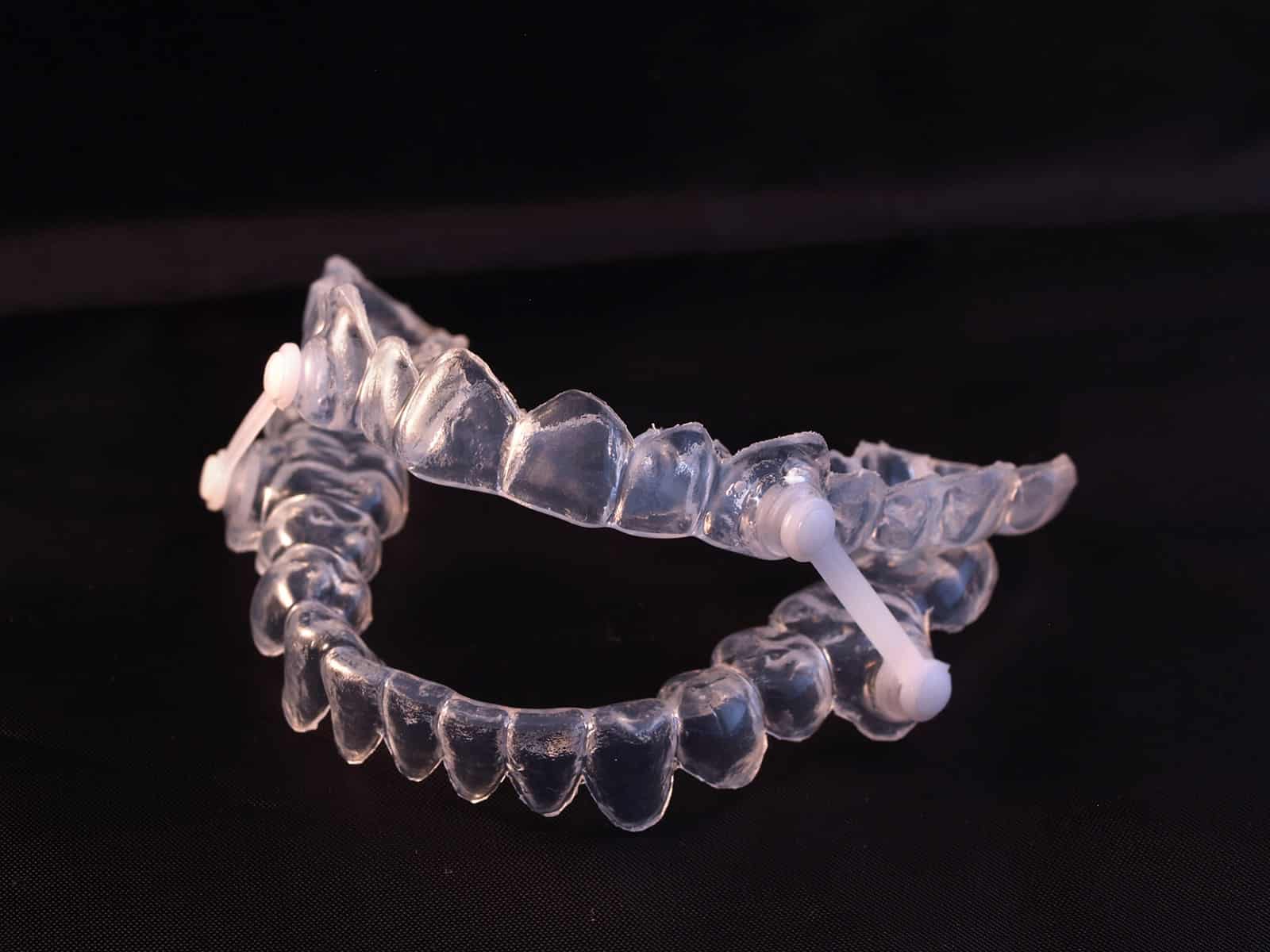Common TMJ Symptoms
TMJ has so many different symptoms, which is why it’s hard to identify and diagnose. Some of the symptoms of TMJ include:
- Headaches
- Severely worn teeth
- Head and neck muscle tension
- Sore jaws
- Migraines
- Shoulder tightness
- Tingling in the fingers
- Teeth that are cold sensitive
- Pain behind the eyes
- Ringing in the ears, ear pain, or vertigo
- Head, shoulder or neck pain
When your bite is imbalanced or you have unstable jaw joints, your body tries to remedy the problem by overcorrecting. When your body overcorrects, it may results in clenching, grinding, muscle fatigue or other TMJ symptoms. The pain may radiate through your head and ears and into your neck and shoulders.
To determine what the root cause of your TMJ pain is, Dr. Chris Hill and our team will evaluate your mouth. Once we identify the root cause and determine where your joint should be, we will create a custom treatment for you. The treatment we provide you will relieve your pain and correct the issue permanently.
Diagnosing TMJ
With all the different symptoms of TMJ, it’s hard to get a proper diagnosis without seeing a Richmond Heights, MO TMJ dentist. This is why it’s important to schedule a consultation with Dr. Hill for your own dedicated consultation. To start, Dr. Hill will ask you a series of questions about your jaw and teeth. He may also request that you use your jaw so he can see your jaw muscles in action. He will also put pressure on the jaw joints to see how well they function and their level of health.
Aside from the physical examination, Dr. Hill will also take digital x-rays for a deeper look at the current position of the jaw joints and head and neck structures. Dr. Hill utilizes advanced technologies to precisely diagnose optimal position of jaw joints to achieve their desired function. It will also relieve TMJ symptoms such as tension headaches, migraines, and sore jaws.
Some of the technology we use to diagnose TMJ includes:
- CBCT Scan: This piece of technology gives us an advanced 3D x-ray to show use your entire head and neck including jaw joints, teeth, and spine in one complete picture.
- Eletromyography (EMG): This technology measures muscle activity in the head and neck so we can see if your muscles are overstimulated. We also use this to determine which muscles are the least stimulated. We know our exact endgame before your treatment starts.
- Sonography/Joint Vibration Analysis: This technology allows us to listen to your joints to better understand what is happening to the joint disc and if there are any abnormalities present.
- K7 Jaw Tracking: This technology shows us the path the jaw takes when it moves and also gives us an understanding of where your jaw should rest for optimal muscle positioning.
- TENS Unit: This device uses small electrical pulses on the jaw muscles to help them relax so we can better correct alignment issues.
- T-Scan Digital Bite Analyzer: Our last piece of technology we will use to diagnose and treat TMJ gives us information about how your teeth touch each other and the amount of force each tooth endures. With this information, we have a better understanding of how muscles are affected. This also gives us information to balance and adjust the bite.
From Diagnosis to TMD Treatment in St. Louis
After Dr. Hill diagnoses you with TMJ in St. Louis, he will recommend the right treatment option for you. In most cases, it involves using an oral appliance or orthotic. Other patients may require orthodontics. In some cases, we might recommend bite reconstruction.
If you are suffering from these common TMJ symptoms in St. Louis, call (314) 678-7876 or email us to schedule a consult.



